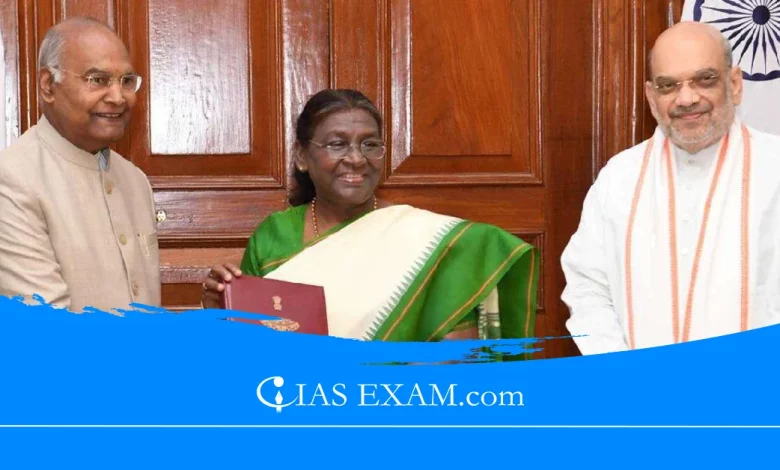Daily Current Affairs for UPSC
Kovind Panel Report on ‘One Nation One Election’ initiative
Syllabus- Polity [GS Paper-2]

Context
Ram Nath Kovind led panel has recently submitted a report on the ‘One Nation One Election’ initiative to the President.
Background
- Simultaneous Elections (One Nation One Election) refer to the concept of holding Lok Sabha and State legislative assembly elections together, with the goal of lowering the frequency of elections and their associated costs.
- Simultaneous elections in India to the Lok Sabha and State Legislative Assemblies were held in the years 1951-52, 1957, 1962 and 1967.
- Thereafter, the schedule couldn’t be maintained and the elections to the Lok Sabha and the State legislative assembly still not been realigned.
Suggestions of the Panel
- Opting Step wise Process: According to the panel, simultaneous elections to Lok Sabha and state assembly elections can be held in the 1st step, accompanied by local body (municipal and panchayat) elections in 100 days in the 2nd step.
- In case of hung House: No-confidence motion, fresh elections can be held only for the remaining term of the immediately preceding full term of the House.
- Constitution Amendments Needed: The panel has recommended amendments to Article 83 (duration of Houses of Parliament) and Article 172 (duration of State legislatures) of the Constitution.
- This constitutional amendment will not need ratification by the States.
- Ratification of states: The panel also endorsed amendments to Constitution which calls for ratification by the States;
- Article 324A of the Constitution to permit simultaneous elections in panchayats and municipalities; and
- Article 325 to allow the Election Commission of India (ECI), in consultation with the State election authorities, to prepare a common electoral roll and voter ID cards.
Arguments In Favour of One Nation One Election
- It will lessen the huge expenditure incurred for undertaking separate elections every year.
- The issue of frequent elections leads to imposition of MCC over prolonged durations of time which influences the everyday governance. Simultaneous elections can overcome such issues.
- Simultaneous elections will free the crucial manpower which is frequently deployed for prolonged durations on election duties.
- The attention on governance will increase, instead of being constantly in election mode.
Arguments Against One Nation One Election
- All states and the central government face massive logistical challenges which include coordinating the schedules, assets and many others.
- It may also assist the dominant national party or the incumbent at the Centre at the cost of regional parties and regions issues can be overshadowed by the national issues.
Way Ahead
- Simultaneous elections for all 3 tiers of government will enhance governance structure. It will decorate “transparency, inclusivity, ease and confidence of voters.
- The twenty second Law Commission, analyzing the simultaneous elections issue, is predicted to propose simultaneous elections from the 2029 general election.
Source: The Indian Express
UPSC Mains Practice Question
Q.Do ‘One Nation One Election’ initiative compromise democracy and federalism? Analyze.





.png)



